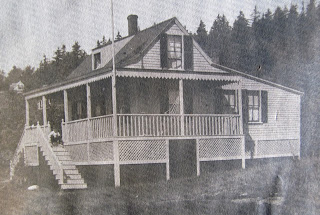A Dictionary of the English Language: in which The Words are deduced from their Originals, Explained in their Different Meanings, And Authorized by the Names of the Writers in whose Works they are found.
That’s the real title – I photographed it so you’d believe me!
The author was Samuel Johnson, A.M. and the publication date of the fourth edition was MDCCLXX – 1770. The covers are full leather, quite distressed; the boards scuffed. The owner was an Eben. Everett, and he signed his name on the title page in November, 1820.
I bought it at a flea market 180 years later for $10.00.
Every now and then, I sit down with a cup of tea or coffee and read a few pages of Johnson’s dictionary. It can be tough sledding: instead of using an “s” when it appears within a word, these funny “f” characters appear – it slows you down when you’re reading.
For example, try this definition: “loathsome. Caufing fatiety or faftidioufnefs.”
Or, “insteep. To foak; to macerate in moifture.”
Say that eight times fast (faft)!
I read it for the words – for the sheer pleasure of finding old words we no longer use, words we have dropped and/or dismissed in favor of more appropriate words; words that have completely different meanings now. I read it to find bizarre Scrabble words: I recently dropped “quaid” onto a Scrabble board, hit a triple word square (for a bijillion points) and then defended my opponent’s challenge by hauling out my 1770 dictionary. He nearly fainted!
Words.
Here are some good ones (and I’ve changed the funny f’s):
to accloy – to fill up, in an ill sense
belly-timber – food
cornage – a tenure which obliges the landholder to give notice of an
invasion by blowing a horn
to daggle – to dip in water
dangler (noun) – a man who hangs around women
denodation – the act of untying a knot
featheredge – boards or planks that have one edge thinner than another
gargarism – a liquid form of medicine to wash the mouth with
to handsel – to use or do any thing the first time
incony -- unlearned, artless
jannock – oat bread
kirtle – an upper garment, a gown
lackbrain – one that wants wit
to maffle – to stammer
nidorous – resembling the smell or taste of roasted fat
outwell – to pour out
pappy – soft, succulent, easily divided
quaid – crushed; dejected; depressed
to rud – to make red (think about ruddy cheeks!)
simnel – a kind of sweet bread or cake
target – a kind of buckle or shield borne on the left arm
understrapper – a petty fellow
vaccary – a cow house
wafter – a passage boat
yelk – the yellow part of the egg
A couple of them are familiar, in an odd sense: lackbrain, rud, understrapper, yelk; we think we’ve seen them before, and their meanings are clear. But others are foreign, mysterious; the only places you find them today are Shakespeare plays and poetry by Milton or Donne.
Just for fun, sprinkle these into your everyday conversations. Ask your baker for some simnel; tell that annoying neighbor that he’s an understrapper; and, ladies, avoid that dangler at the office...
...let the games begin!
NOTE: I’ll be away for a couple of weeks; when I come back, I’ll have a new hip!





